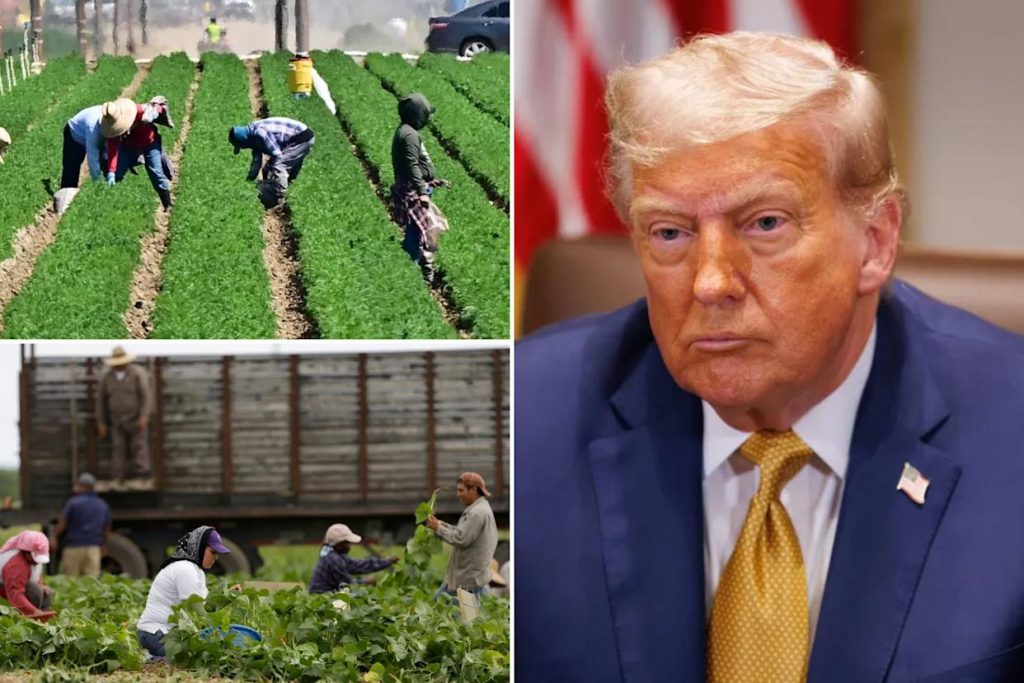Former President Donald Trump has made it clear that there will be no amnesty for undocumented migrant farmworkers under his immigration plans. Speaking during a Cabinet meeting at the White House, he said that although farmers need workers, the government would remove illegal migrants and instead introduce a work program that does not involve giving legal status to anyone. He stressed that the focus is on removing criminals while still supporting the agriculture sector.
Agriculture Secretary Brooke Rollins explained that the program would help farmers access the labour they need as the industry moves toward automation and a stronger reliance on American workers. She said that deportations would continue in a strategic way and highlighted that millions of able-bodied adults on Medicaid could fill open positions in the agriculture sector.
Rollins also linked the program to a recent law requiring able-bodied, childless adults aged 18 to 64 to work at least 80 hours per month to remain eligible for Medicaid. According to her, this new policy could allow farmers to replace foreign workers with American citizens who are already in the Medicaid system. She stressed that there are plenty of workers inside the United States who can do the jobs currently being performed by migrant labourers.
Some people may ask: Does this mean all migrant farmworkers will lose their jobs immediately? The answer is no. President Trump suggested there may be a system where farmers could vouch for certain long-term migrant workers who have proven their value and strong work ethic. This could allow some individuals to remain in the country under special consideration, but it would not be an amnesty program.
During a recent rally in Iowa, Trump mentioned that farmers often trust and rely on long-serving farmworkers, and he suggested that if a farmer is willing to vouch for someone, the government may let that person stay. However, he made it clear that the border must remain secure and that farms should not lose all of their labour because of strict enforcement.
The administration believes that moving toward automation and encouraging domestic workers to take agricultural jobs will help both the economy and national security. Supporters of the plan argue that using Medicaid recipients for farm labour would reduce dependency on government benefits and make agriculture more sustainable in the long term.
Critics, however, say the proposal could result in labour shortages or lower productivity if American workers are unwilling to take physically demanding jobs. They also worry that long-serving migrant workers could be deported despite their long history of contribution to the farming industry.

